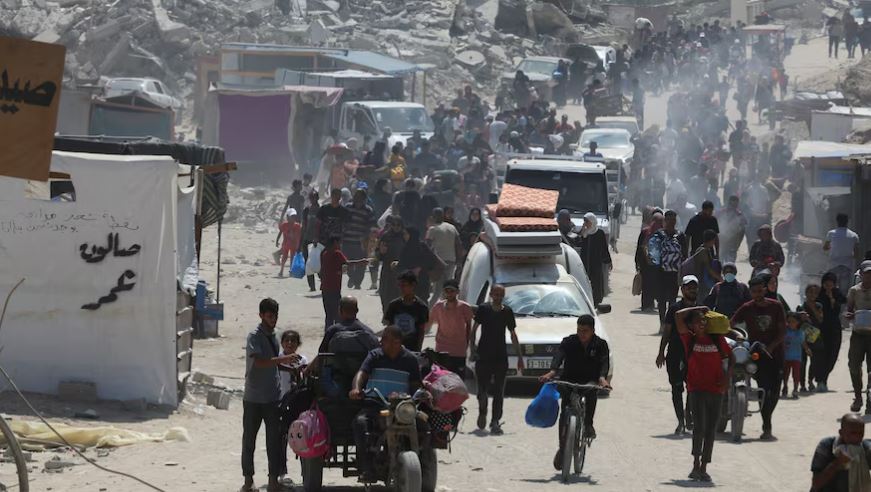In the wake of a tragic rocket attack on the Golan Heights, the United States is spearheading a significant diplomatic initiative to prevent Israel from escalating its response against Lebanon. This move comes after a deadly incident that claimed the lives of twelve youths, intensifying fears of a broader conflict between Israel and the Iranian-backed Lebanese militant group, Hezbollah.
Diplomatic Efforts to Prevent Escalation
The U.S. has undertaken a high-stakes diplomatic mission aimed at constraining Israel’s military actions. The core objective is to dissuade Israel from targeting Beirut, its southern suburbs—known as Hezbollah’s stronghold—or critical infrastructure such as airports and bridges. This strategy reflects concerns over the potential for a full-blown conflict that could further destabilize the region.
Sources with knowledge of the diplomatic efforts, including Lebanese, Iranian officials, and Middle Eastern and European diplomats, have indicated that Washington is working tirelessly to manage the situation. The focus is on preventing a scenario similar to the 2006 war, which saw extensive damage to Beirut and its surroundings due to Israeli airstrikes.
Constraints on Israeli Military Strategy
Israeli officials have conveyed their intention to inflict damage on Hezbollah without provoking a large-scale war. However, as the situation remains fluid, there is no formal commitment from Israel regarding the exclusion of Beirut or other civilian areas from potential strikes. The U.S. State Department has refrained from commenting on specific diplomatic dialogues but underscores its commitment to finding a durable solution to cross-border violence.
White House spokesperson John Kirby confirmed that while Israel has the right to respond to attacks, the broader goal remains to avoid an extensive regional conflict. The U.S. has emphasized its support for Israel’s security but simultaneously advocates for measures that would prevent a larger-scale escalation.
International Diplomacy and Regional Implications
The situation has garnered significant international attention. France, with its historical ties to Lebanon, has also engaged in diplomatic efforts to de-escalate tensions between Israel and Hezbollah. Paris has been involved in passing messages between the two parties to mitigate the risk of further violence.
The Iranian government has been informed by the U.S. of the potential ramifications of escalating the situation, reflecting a broader strategy to prevent the conflict from spreading. Hezbollah, a key player in Iran’s regional strategy, has been at odds with Israel over various issues, including recent exchanges of fire along the Lebanese border.
Israeli Domestic Response and Political Dynamics
Within Israel, the response to the Golan Heights attack has been marked by a complex mix of military strategy and political considerations. Israeli Prime Minister Benjamin Netanyahu’s security cabinet has authorized selective responses, aiming to balance military objectives with the need to avoid a total war. This decision reflects a cautious approach amid domestic and international pressure.
Finance Minister Bezalel Smotrich and National Security Minister Itamar Ben-Gvir, known for their hardline positions, have called for a more aggressive stance. Smotrich’s statement demanding severe retaliation underscores the internal divisions over how to address Hezbollah’s actions.
Summary
The diplomatic push led by the United States is a critical effort to prevent an escalation of conflict following a deadly rocket attack on the Golan Heights. The U.S. aims to restrain Israeli military responses, particularly to avoid targeting civilian areas and key infrastructure in Lebanon. The situation remains dynamic, with international and domestic actors influencing the course of events. Ensuring regional stability while managing the immediate aftermath of the attack is paramount to preventing further violence.
Soumya Smruti Sahoo is a seasoned journalist with extensive experience in both international and Indian news writing. With a sharp analytical mind and a dedication to uncovering the truth, Soumya has built a reputation for delivering in-depth, well-researched articles that provide readers with a clear understanding of complex global and domestic issues. Her work reflects a deep commitment to journalistic integrity, making her a trusted source for accurate and insightful news coverage.



